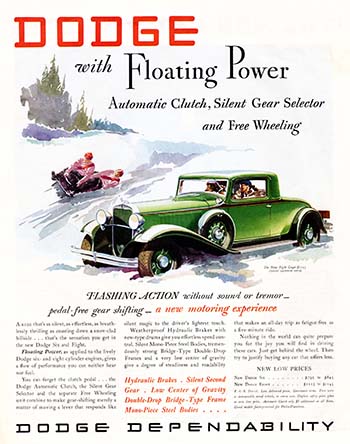Free Wheeling (1932)
Produced by Hal Roach (1892-1992), Directed by Robert F. McGowan (1882-1955)
Roach was a key producer in early movies. He used a small inheritance from his parents to set himself up as a comedy producer with his friend the comedy great Harold Lloyd (1893-1971). Roach created the Hal Roach Studio which he billed as "Laugh Factory to the World." In addition to Our Gang, Roach also produced Laurel and Hardy as well as numerous others who are far less known including Lupe Velez (known as "the Mexican Spitfire") and ZaSu Pitts. Roach was Mack Sennett's rival, and was ultimately more successful than Sennett. The Roach Studio existed into the 1950s. Roach released his pictures through M-G-M but ran into trouble with them when he created a joint venture with Vittorio Mussolini (son of the dictator... and you may also recall, friend of Rossellini) and had to abandon both the joint venture and his relationship with M-G-M. Roach defended himself, essentially saying that he could use his influence with the fascists for good. But the studio didn't buy it. Roach continued to produce Our Gang, but by the late 1930s had shifted largely into feature films and more highbrow entertainment. In the late 1940s, he was among the first to understand (and profit from) the move toward television. By 1951, Hal Roach Studios was producing more than 1,500 hours of TV annually. Roach left active involvement in his studio in the mid 50s and the company soon folded. However, Roach lived on. He remained active in the Hollywood community and continued to consult on films. His last public appearance was at the 64th Academy Awards in 1992, roughly three months after his 100th birthday.
McGowan had been a firefighter in Denver but came to Hollywood after an injury. He began as a writer in 1913 and, when he moved to Our Gang in the early 1920s, it was in that capacity. However, he soon moved to directing. He directed almost all the Our Gang films until 1933. Reportedly, he was wonderful working with kids...with their parents, not so much. It's said that the difficulties of working with stage mothers led him to quit.
Free Wheeling is in many ways typical of the Our Gang films. It shows people who fit into a series of categories: rich people, poor people, adults, older kids, younger kids, Black, white, and so on. It establishes a hierarchy among these. In general, it's the rich who envy the poor (Dickie wants to be a member of the gang), not vice versa. Younger kids are better than older kids, but all kids are better than adults.
 For younger kids, the fact of being a kid is much more important than race or class. However, race and class are more important for older kids and extremely important for adults. Children, particularly younger children, live in a rich fantasy world full of wonderful inventions (like the car they've built in this film), club houses, special kid zones. In this kid world, Black and white characters probably come as close to treating each other equally as characters do anywhere in American movies of this period. However, notice that as the kids get older, they are increasingly race conscious. Stymie plays freely with the older white kids but they're driving the car and he's the "floating power" (check out the ad to the left, from 1932, the same year as the film). He's in the engine compartment. One the one hand, that's kind of a cool job (and he's far more of the movie's star than the older white kids), on the other, he's the engine, they're the drivers. The only Black adults you see in the movie are servants to the white adults.
For younger kids, the fact of being a kid is much more important than race or class. However, race and class are more important for older kids and extremely important for adults. Children, particularly younger children, live in a rich fantasy world full of wonderful inventions (like the car they've built in this film), club houses, special kid zones. In this kid world, Black and white characters probably come as close to treating each other equally as characters do anywhere in American movies of this period. However, notice that as the kids get older, they are increasingly race conscious. Stymie plays freely with the older white kids but they're driving the car and he's the "floating power" (check out the ad to the left, from 1932, the same year as the film). He's in the engine compartment. One the one hand, that's kind of a cool job (and he's far more of the movie's star than the older white kids), on the other, he's the engine, they're the drivers. The only Black adults you see in the movie are servants to the white adults.
Although racism is certainly depicted in the film, I'd argue that the film itself is not racist. It is a savagely and unintentionally accurate portrayal of race in one segment of American society. However, this film is misogynistic. Dickie's mom is really the villain and there are numerous jokes at her expense. His dad gets a free pass.
It's also very important to note the different real-life fates of Dickie Moore and Matthew Beard, the real people who played Dickie and Stymie respectively. There's quite a lot of evidence that Moore and Beard as young children really were best friends. Not only did they hang out together on the Our Gang set, they slept at each other's homes and played together (Read about it here, one takeaway from the article is that their friendship was possible because Moore knew that Beard could never be a rival for Hollywood parts.). But their fates could not have been more different. Moore went on to something like B lister fame and fortune. Beard went on to addiction and jail. Moore lived to be 90, Beard died in his mid 50s. And here's another easter egg for you. On the previous page at the bottom, I tell you something about the stars of Our Gang. Use the link there to find the names of additional stars and then tell me something about lives of two of them. Upload a 50-150 word answer to the question to canvas practice with the file name rascals before the last day of class and I'll add 5 points to your first exam grade. Please note that this is an easter egg for students who make the effort read carefully and on time. This only works if you don't tell your classmates about it and don't ask me about it in class (if you do I'll deny any knowledge). It won't show up officially in grade book but the points will be added to your grade. If you want to talk to me about it, please either come by my office or send me an email.
Cast:
Dickie Moore (1925-2015) (Dickie): appeared in numerous films in the 1930s. He went on to own a public relations firm. Moore had a late-life marriage to actress Jane Powell. He also wrote a book called Twinkle, Twinkle, Little Star (But don't have sex or take the car) about the lives of child actors.
Matthew Beard (1925-1981) (Stymie): played in Our Gang from 1930-35. He had a variety of other bit parts in movies but this ended in his late teens. He spent much of the next 20 years in rough living. He became addicted to heroin and was in and out of jails on charges related to drug addiction and theft. He went through rehab in the 1960s and in the 1970s returned to acting with a series of cameo performances on popular shows of that including Sanford and Son and Good Times. He was only 56 when he died of a stroke in 1981.
Johnnie Mae Beard (1900-1962) (Stymie's mother) really was Stymie's mother. In addition to Stymie, she had four other children, Bobbie, Betty Jane, Carlena, and Rene, all of whom appeared in Our Gang or in other short films. Carlena Beard was later personal assistant to jazz musician Lionel Hampton.
Lillian Rich (1900-1954) (Dickie's Mother): Rich was an English actress appeared in over 60 films starting in 1921 (more than 50 before Free Wheeling).
George McFarland (1928-1993) (Spanky): became one of the stars of Our Gang. He held various jobs after the end of Our Gang. He was on TV in the 1950s, and appeared in film cameos and gave lectures afterwards. When he died in 1993, his body was cremated but he has a headstone at the Texas State Cemetery in Austin.
Next: The New Wave in France
Next: Cartoons
You can watch Free Wheeling' here.
 Check out our page on Pete Smith Specialties and watch the 9 minute Pete Smith film Quicker 'n a Wink.
Check out our page on Pete Smith Specialties and watch the 9 minute Pete Smith film Quicker 'n a Wink.